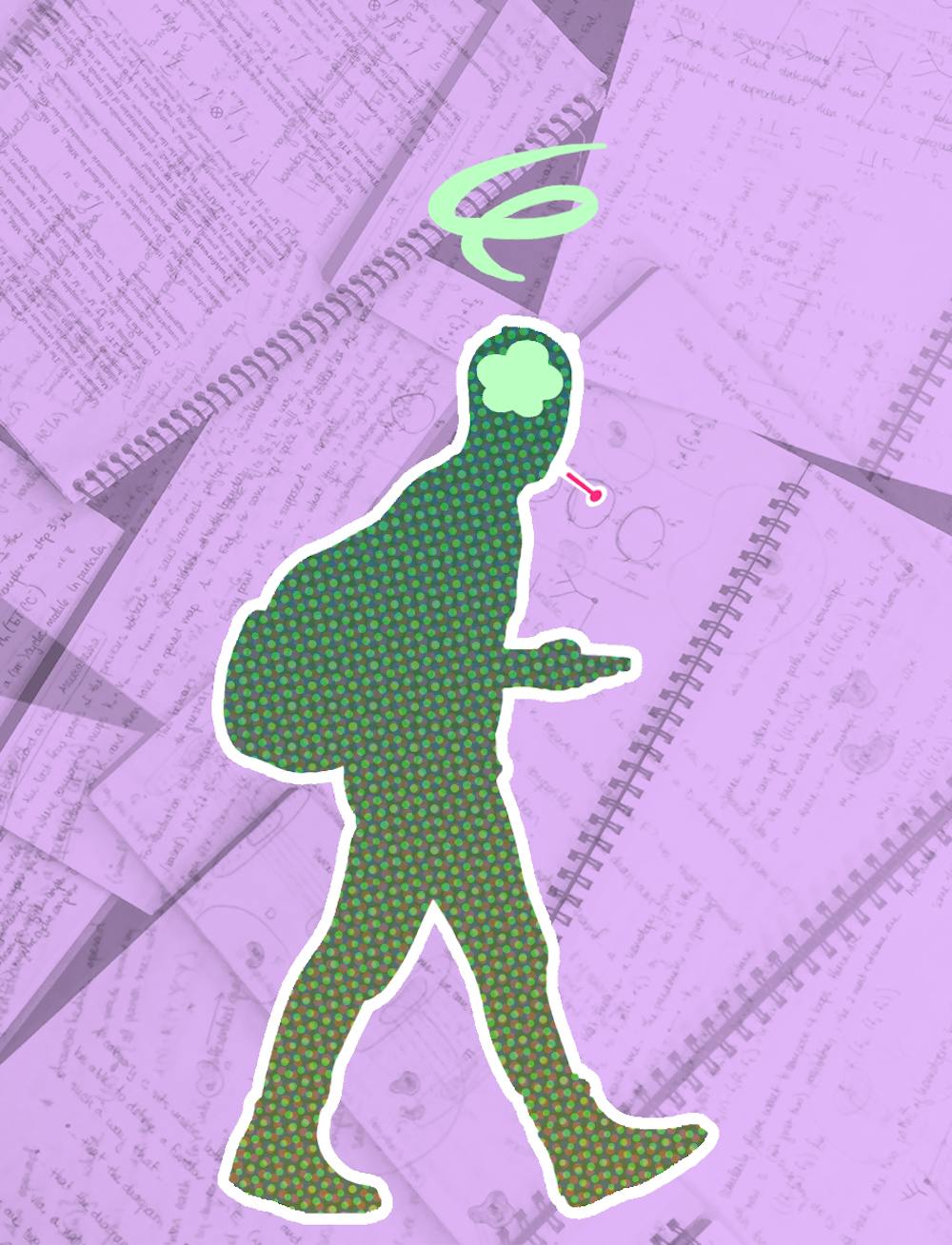College students file into class one at a time as the professor writes on the board. One student, absent the week before because of COVID, sits in the front row.
The lecture begins, and at first everything is normal, but as time passes, they are losing focus. Suddenly, the energy they had this morning is gone. Fighting sleep, they stare at their professor in a daze, barely grasping the lesson and waiting for class to end.
Mystery still surrounds the long-term effects of COVID-19; however, new research shows brain fog, or COVID brain, is a common symptom that might affect students' performance in school.
COVID brain is a symptom of long COVID characterized by a lack of focus and mental clarity causing confusion and forgetfulness. For college students, this might mean struggling to focus in class, during tests and forgetting about important tasks or assignments.
Ella Reis, a sophomore psychology major at Miami University, tested positive for COVID-19 in January and said she still deals with COVID brain and often struggles to pay attention in class.
“I lose focus,” Reis said. “Sometimes I would just completely space out and not know what’s happening.”
Reis copes with her struggles by recording classes on her phone to avoid missing important information.
“I’ll be like, ‘Oh my gosh, I just wasted 30 minutes of the teacher's lecture,’” Reis said. “So I always find myself recording it … which helped a lot.”
Zach Mentzer, a senior mechanical engineering major, tested positive on Nov. 13. Nearly a week clear of the illness, he also feels the effects of the illness.
“I’ll be in the middle of a task and forget what I am doing,” Mentzer said. “It’s like having a weird short-term memory problem and being aware of it.”
He fears COVID brain is already taking a toll on his classwork. He remembers working on a recent assignment where his lack of focus caused him extra work.
“I was making up a lab for one of my electrical engineering courses … but none of my numbers were adding up,” Mentzer said. “I would look at what was on the oscilloscope and write the completely wrong thing … It made what would have been a pretty easy lab an hour and a half long.”
Enjoy what you're reading?
Signup for our newsletter
Mentzer said sleep is the best way he has found to cope with COVID brain. He gets nine to 10 hours of sleep a night now instead of forcing himself to study late.
Akiesha Wilson-Coulibaly, director of Student Health Services (SHS) at Miami, mentioned several long-term symptoms to look out for if someone suspects they have COVID brain.
“The symptoms of long COVID or brain fog,” Wilson-Coulibaly said, “could be memory loss, a decreased attention span … issues with multitasking."
Wilson-Coulibaly said students who are experiencing symptoms of long COVID should speak to a healthcare professional.
“If they’re having symptoms and they need some guidance on that, they can come into Student Health or they can go to a neuropsychologist who has been known to help people with cognitive function issues,” Wilson-Coulibaly said.
She also recommends several healthy habits to help students who are dealing with COVID brain. She suggests eating healthy, exercising, getting good sleep and avoiding drugs and alcohol.
At this time Miami is not offering any specific services outside of the Student Health Center to those dealing with COVID brain.




